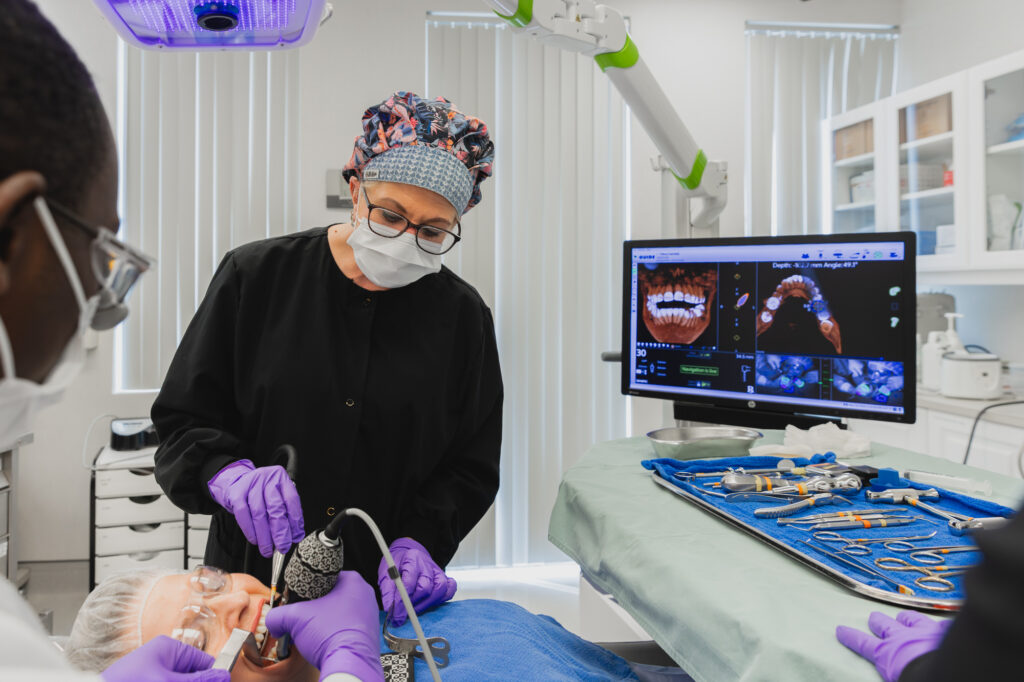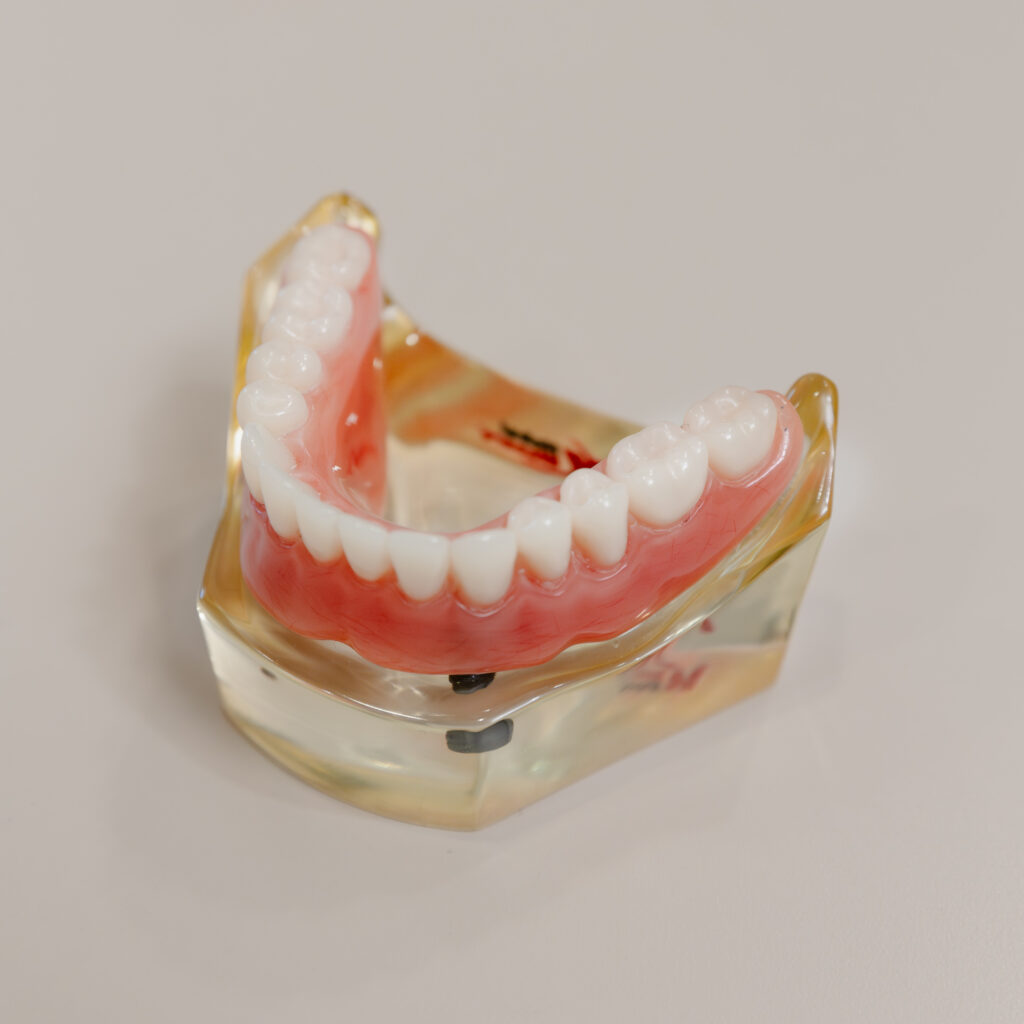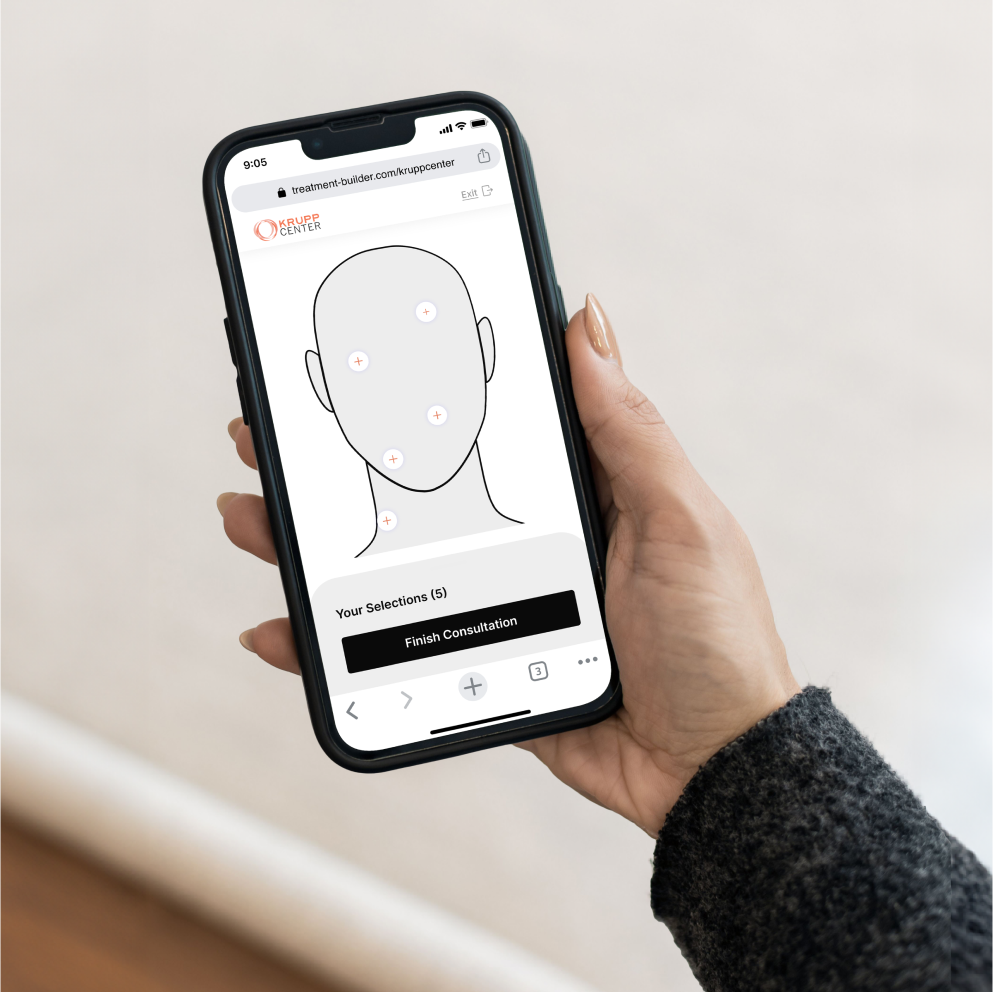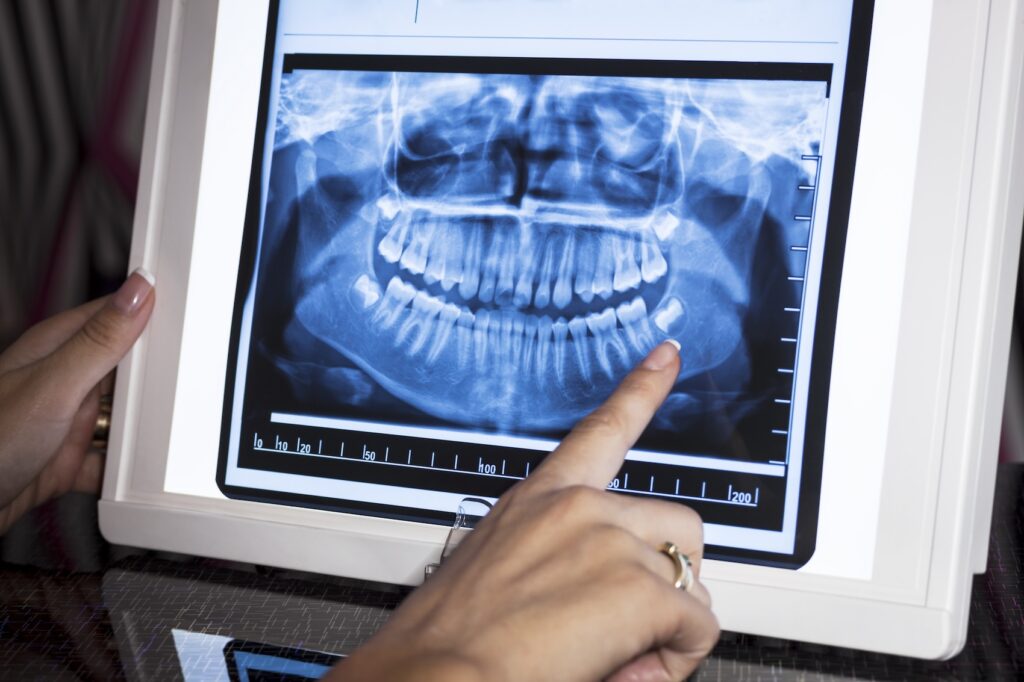
No one looks forward to getting their wisdom teeth removed. However, if you are experiencing pain or soreness in your jaw or your dentist has recommended getting your wisdom teeth checked, these are signs you should probably take that next step.
At the Krupp Center, we understand that the idea of oral surgery can feel overwhelming, which is why we are here to guide you every step of the way through wisdom teeth removal near Hampton, MD.
Whether you are dealing with pain, preparing for preventive care, or simply looking for trusted information, this guide will walk you through what to expect before, during, and after your wisdom tooth removal procedure.
What are wisdom teeth?
Wisdom teeth are very similar to the other permanent teeth in our mouth, with the main difference being their late emergence. Typically, this happens at a later age, usually between the ages of 17 and 25.
Most of us will have 4 wisdom teeth, one in each corner of the mouth. Sometimes, though, people will have fewer than 4 grow in, or even none at all.
All our teeth serve a purpose, and the wisdom teeth are considered chewing teeth (like your molars). Many will have their wisdom teeth grow in without complications, while others experience pain and discomfort when the wisdom teeth lack the necessary space in the jaw or grow in at the wrong angle.
When this happens, we call them “impacted.”
What are “impacted” wisdom teeth?
An impacted wisdom tooth is a wisdom tooth unable to fully emerge. The wisdom tooth often presses and becomes stuck under a neighboring molar. This can cause a variety of dental problems, but most notably will cause pain in the mouth.
Signs You Might Need Wisdom Teeth Removal
Not everyone will need to get their wisdom teeth removed. Some people have enough space in their mouths that their wisdom teeth grow in properly, without causing damage or discomfort.

However, not all of us have enough space in our mouths to fit the extra teeth when they begin to grow in. Here are some common signs that you might need wisdom teeth removal near Hampton, MD.
Your Jaw is Painful, Sore, or Stiff
This is the most common sign that you might need to get your wisdom teeth removed. When wisdom teeth grow into the mouth improperly, your mouth can swell. This causes stiffness, soreness, and jaw pain.
You Notice Teeth Crowding
Wisdom teeth are larger than your other teeth, and when they grow in, they can overcrowd your mouth. Teeth crowding happens when the wisdom teeth take up too much space, putting pressure on other teeth and forcing them to move.
This can affect the appearance and straightness of the smile. Removing the wisdom teeth allows the remaining teeth to shift into proper alignment, filling the newly available space.
You Always Seem to Have Cavities
Wisdom teeth, especially when they grow in at unusual angles or cause tooth crowding, can be more difficult to brush. This means that these teeth are more susceptible to plaque build-up and cavities.
You Have Trouble Opening and Closing Your Jaw
Being able to close and open your jaw without pain or discomfort is an important part of our overall health and wellness. If you cannot properly chew your food, it may directly affect your digestion.
In severe cases, wisdom teeth can hinder your ability to shut your jaw comfortably and correctly.
What if I wait to have my wisdom teeth removed?
The longer you wait, the more complex it can be to remove your wisdom teeth. It is much easier to remove wisdom teeth when they first grow in (usually in the late teens or early 20s).
Typically, when done early, patients can heal faster and more predictably, and have fewer risks of complications. As you age with your wisdom teeth, the roots become larger and your jawbone density increases.
This can make it a little more challenging to remove wisdom teeth, and the recovery process might take longer as a result. If you have been holding off on removal, we recommend scheduling your wisdom tooth extraction as soon as possible. It’s never too late, but sooner is always better.
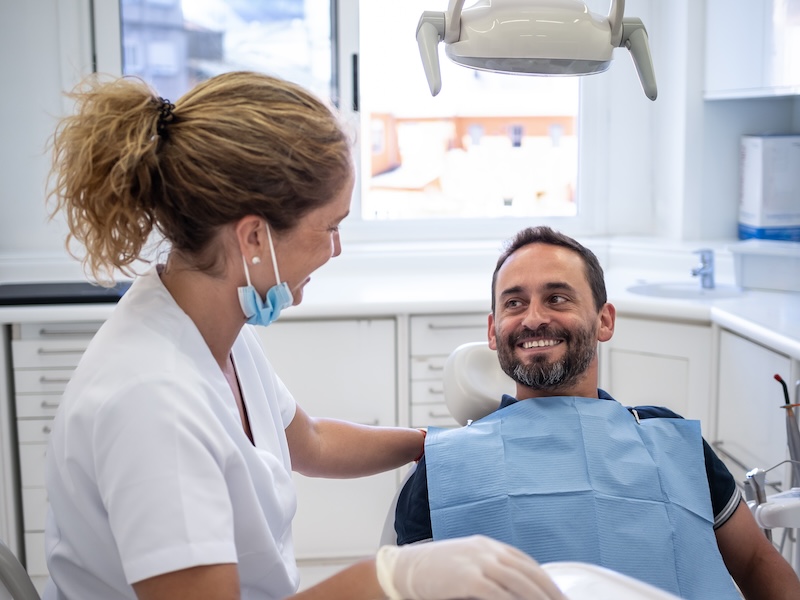
From Consultation to Recovery: Wisdom Tooth Extraction Explained
If you have been struggling with impaction, overcrowding, or wisdom teeth cavities, the best way to find relief is often a wisdom tooth extraction. Knowing what to expect when you walk through the door for your wisdom teeth removal near Hampton, MD, can relieve a little anxiety and help the entire process feel more comfortable.
Here is what you can expect when you come to the Krupp Center for your wisdom tooth extraction.
The Referral Process and Consultation
The first step you should take before scheduling your wisdom teeth removal appointment is receiving a referral from your primary dentist. At the Krupp Center, our team specializes in oral surgery, rather than checkups or providing diagnoses.
Once your primary dentist has determined that extraction is the best solution for your oral concerns, they will provide you with a referral. With this referral, you will be able to schedule an appointment and consultation with our team at the Krupp Center.
During the consultation, we will outline the extraction procedure for you and answer questions you may have about the process. When the consultation is complete, you will be able to move forward with your wisdom teeth removal procedure.
Preparing for Your Removal
There are a few steps you will need to take before the date of your extraction. Wisdom teeth removal near Hampton is performed under sedation, and because of this, you will need to follow some important guidelines:
- Do not eat or drink anything after midnight the day before your extraction.
- Starting 12 hours before your extraction, do not smoke.
- Arrange for a responsible adult to drive you to and from the office (they will need to remain at the Krupp Center during the procedure).
- Wear comfortable, loose-fitting clothing to your extraction.
- Remove all contact lenses, jewelry, and dentures before arriving at your extraction.
- Inform your provider if you have any symptoms of illnesses, like a sore throat, coughing, etc.
The Wisdom Tooth Extraction Procedure
On the day of your extraction, a member of our team will take you to a private operating room and prepare you for the procedure. Before we administer the anesthesia, you will have the opportunity to ask any last-minute questions you have about the wisdom tooth removal process.
After we answer all your questions, we will give you the anesthesia discussed during your consultation to ensure your comfort during the entire procedure. Once the anesthesia has taken full effect, your oral surgeon will proceed with the extraction.
During the procedure for wisdom teeth removal near Hampton, your oral surgeon will carefully remove your wisdom teeth from the sockets in your jawbone. In some cases, the oral surgeon makes minor incisions in the gums to access these teeth.
Once the wisdom teeth are removed, your oral surgeon will clean the extraction sites and may stitch them to promote healing.
After Your Removal
Following wisdom teeth removal, you can anticipate some discomfort, swelling, and minor bleeding. Your oral surgeon at the Krupp Center will provide you with a list of detailed post-care instructions, which includes what you can and cannot eat, methods for managing any pain or swelling, and proper oral hygiene practices after an extraction.
It is critical to follow these post-care instructions, as they help prevent complications and ensure the healing process goes smoothly. If your oral surgeon prescribes an antibiotic, complete the entire course of treatment to prevent infection.
Your oral surgeon may recommend that you avoid drinking through a straw or smoking, as these habits can delay the healing process and potentially cause complications. If you have questions during the healing process post-extraction, contact our team at the Krupp Center.
For more tips on how to recover after your surgery, read our blog on wisdom teeth removal recovery.
Follow-Up Appointments to Monitor Progress
In the weeks following your removal, you might have a follow-up appointment with your oral surgeon to monitor the healing process and ensure everything is going smoothly after your extraction.
If you notice any unusual symptoms in the days and weeks following your wisdom teeth removal or experience any complications, notify your oral surgeon and schedule a follow-up appointment so we can evaluate any issues firsthand.

Your Comfort Starts With a Conversation
Facing wisdom tooth trouble can feel intimidating, but taking action now spares you from bigger headaches (and toothaches) later on. By understanding the signs, the procedure, and the recovery, you are already one step ahead in protecting your smile.
At the Krupp Center, we are proud to offer expert care tailored to each of our patients’ needs. If you’re considering wisdom teeth removal near Hampton, MD, and have a referral, we are here to chat. Request an appointment and put that wisdom tooth worry behind you.
Our team understands the importance of knowing all the facts before making decisions on your oral health and overall well-being. Read our myth-busting blog on wisdom teeth extraction to get the facts on this procedure.
